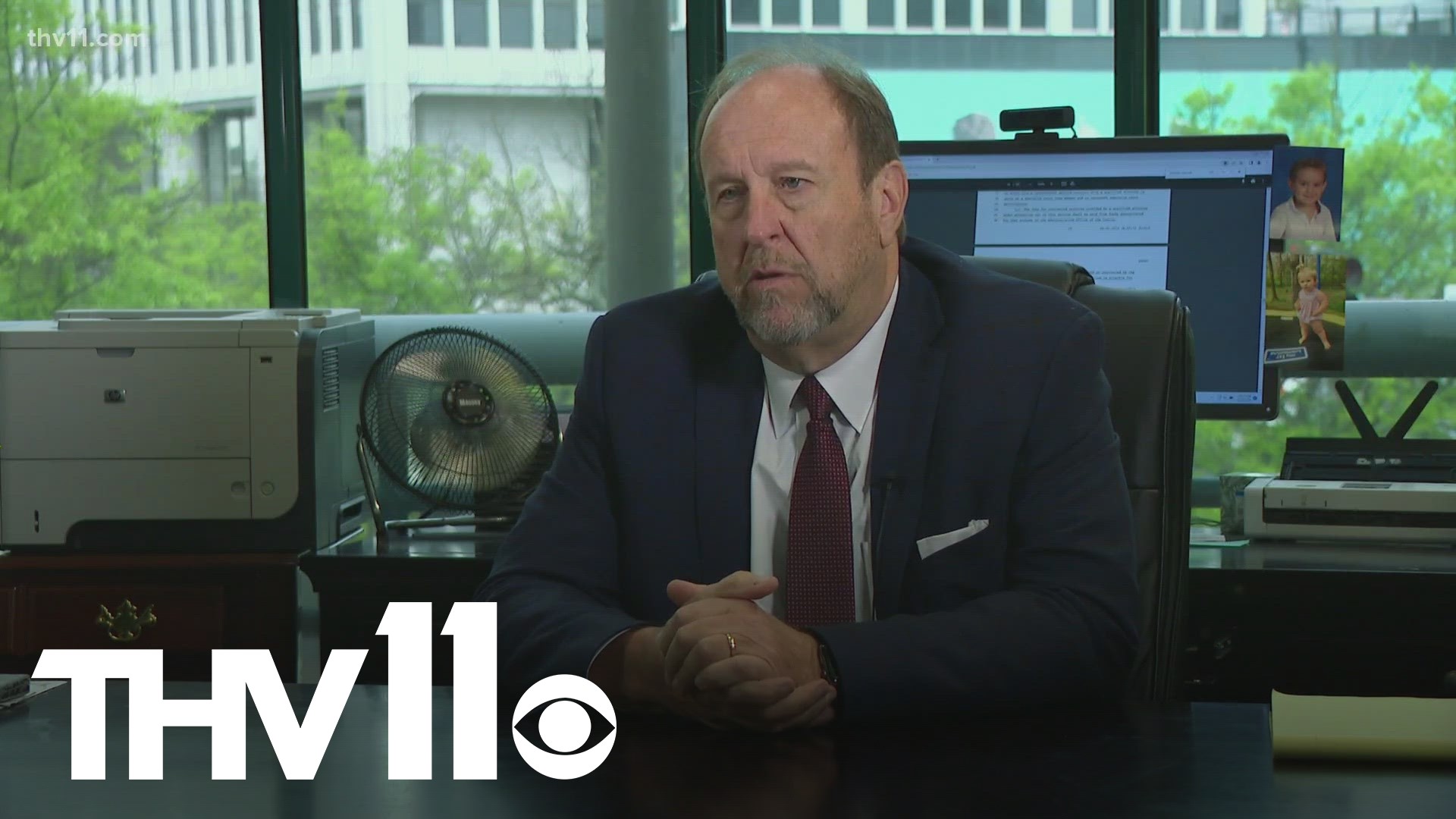LITTLE ROCK, Ark. — For various reasons, the Pandemic saw violent crime rates accelerate, which led to a widespread impact.
The record number of homicides in Little Rock last year alone factored in the mayoral election and the search for a new police chief.
The rise in crime also put a strain on Arkansas's court system with data that revealed troubling backlogs and the problems that they're causing.
"When you do the math and the numbers, and with the numbers that keep coming in daily, you're always playing catch up," said Gregg Parrish, Director of the state's Public Defenders Commission. "I don't know how we catch up at this point."
When we sat down with Parrish, he was coming off daily trips to the state capitol. In his role, he is the one overseeing the deployment of the men and women willing to defend people when they enter the criminal justice system and can't afford their own lawyer.
It can be an exhausting time, and to use a sports analogy— he's coaching with a very short bench.
"The problem is in certain sectors of the state, even here in Little Rock, is finding people interested in doing this type of work," he explained.
Parrish said the pandemic made a large number of those willing attorneys leave this type of work. Years of experience have been drained, and it's causing an acute problem.
"Our problem is a lot of the more violent cases, the "Y" felony cases," Parrish said, referring to the most serious classification of crimes in Arkansas code.
"To get to handle the "Y" felony cases, you have to acquire the trial experience to do so. That takes years. And when I lose one person with 15 years experience, you don't replace that overnight. That's impossible," he added.
That loss of legal expertise comes at a bad time.
With record murder rates in Little Rock in 2022 and similar trends across the state, the pattern is straightforward: Crime goes up, and police arrest more people, which then leads to more court cases.
All this means is that a swelling number of times a prosecutor, defense attorney, and a judge need our justice system to crank up, the surge threatens to make an already imbalanced process even worse.
"I think this is a problem nationwide, in fact," said Robert Steinbuch, professor at the Bowen Law School at the University of Arkansas, Little Rock.
"Government tends to underfund public defenders more than it underfunds, prosecutors offices. The consequences, perhaps, obviously are that the criminal defendants themselves have attorneys who are overworked. and can't apply a level of attention to each individual case," he explained.
That's because the number of individual cases has been on the rise.
The court system in Arkansas is run by the Administrative Office of the Courts, under the state Supreme Court. They have a research arm that tracks how efficiently it's working.
No one from the judiciary branch would talk to us on camera, but the reports that they generate are publicly available.
Two years ago, a national database started including Arkansas's numbers and found relative to its size, the Natural State has the busiest criminal court system in America.
On top of that, the newly passed Protect Arkansas Act figures to put more pressure on the system. Act 659 of 2023 reforms parole laws and will lock some convicted criminals into serving 85 or 100 percent of their sentence.
That's a change from a structure that can allow convicts to get out of prison much sooner, in some cases, as little as a quarter of the sentence in extreme cases that critics pointed to in legislative testimony.
Parrish said that because of these changes, fewer cases are likely to avoid trial with plea deals.
"We're going to have a lot more trials. We're talking a lot more trials early because having dealt with defendants over the years, it's going to be extremely hard for any defendant to sign up to take 100% on any time he or she receives," he explained.
"One of the things that we were very mindful of is we put effective dates so that it would phase in," said state Sen. Ben Gilmore (R - Crossett), who co-sponsored the new law and said prosecutors are aware of its potential ramifications.
"The other thing that we've also done is made sure that there's money available to educate prosecutors so that they understand all the facets of the bill," Gilmore said.
According to Parrish, one facet of the bill that could help is the growing reliance on specialty courts, featuring judges and personnel dedicated to hearing drug or mental health cases.
Parrish has also been working with the prosecutors in the busiest circuits to improve efficiency.
Beyond that, he's also trying to get the new, young attorneys. He's been able to attract the experience they need while helping the prosecutors work through the volume of cases.
He needs help in a hurry.
"I'm telling my people right now, we have to act immediately," he said. "With the backlog, we've got now, I envision the first six to 12 months when the crime bill kicks in, it's going to have some impact, serious impact."

